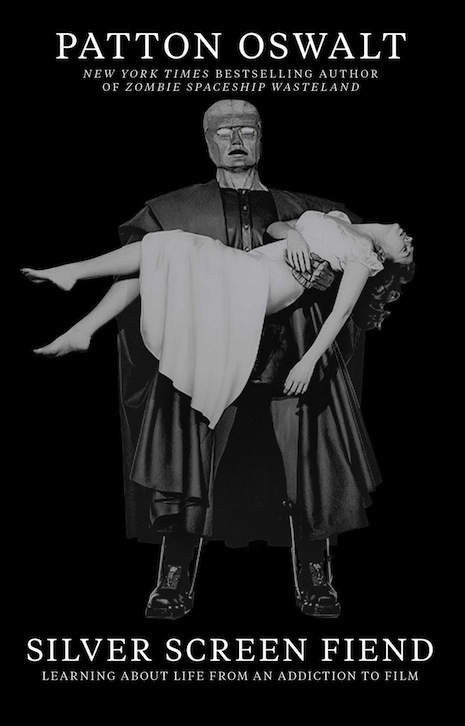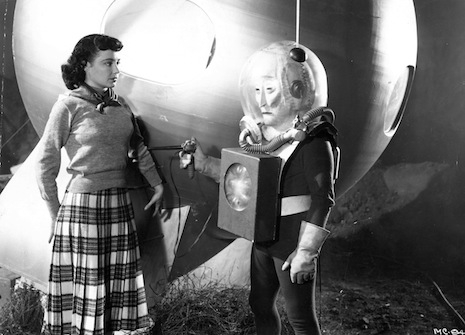
Photo: Matt Hoyle
After graduating college in 1992, I was lucky enough to be able to move to Vienna, Austria, where I ended up living for three years. Because of connections through friends and family there, I was essentially paying no rent, and in that time I took a number of odd, off-the-books jobs and generally had fun exploring the city and trying my damndest to learn German. Mostly what I did is read books (in English) and—especially—watch movies. I’ve read that the French call the twenties the age of movie-going, and that was certainly true of me. I was in my twenties, and I was fairly obsessed with movies. At that time in Austria, every Friday would bring one or two American releases; partly as a link to home, I watched a good deal of those movies, many of them awful, in the theater (there was no such thing as DVDs or streaming, remember; libraries were not plentiful; video rental stores were inconveniently located and pricey). So it was that I watched a category of movie I would probably have avoided at any other time of my life, movies like Another Stakeout and Sliver and Striking Distance and Pacific Heights and Unlawful Entry and Hero and Sommersby and Guilty as Sin and Malice and countless others. Most of these movies were terrible, of course, but not all of them were. In addition to the current Hollywood movies I was seeing, I was also getting drunk on American independent movies and foreign movies and hardy studio-system/auteurist fare, trying to achieve a minimal level of mastery on directors like Jarmusch and Hartley and Wong Kar-Wai and Buñuel and Mike Leigh and Rohmer and Kieslowski and Linklater and Abel Ferrara and Hawks and Ford and Sirk and on and on and on. Vienna’s a good town for revival cinemas, and I was using my gift of free time to catch up in a hurry.
I think it took a generational compeer such as Patton Oswalt (just a year older than myself) to write a book that brought me back to those heady days so powerfully. In his new book Silver Screen Fiend, Oswalt covers with fearful accuracy and depth his own late twenties in which, while pursuing a career as a comedy writer and developing his standup persona, he also attempted to fulfill a personal bet of sorts in which he would spend as many evenings in a movie theater as possible. In a long appendix Oswalt lists what movies he watched on certain dates from 1995 to 1999, and in among the classics of the golden age of cinema (The Philadelphia Story) and foreign masterpieces (Band of Outsiders) and schlock standouts (The Man from Planet X), you can see Oswalt taking in whatever new product Hollywood was issuing as well—Space Jam and Turbulence and Double Team and so on. It was this latter point that made me realize how similar Oswalt and I were, we both felt this inexplicable urge to consume just everything relating to movies.

Oswalt’s first book, 2011’s Zombie Spaceship Wasteland, touched on his cinephilia (it covers his youthful stint working at the Towncenter 3 Movie Theater in Sterling, Virginia) but was mainly about the making of a nerd, if you will, focusing on comic books and standup. Whereas that fine book was a loosely connected collection of essays, Silver Screen Fiend exploits the obsessions of Oswalt’s twenties to give the book a stronger narrative. Oswalt starts the book in 1995, in thrall to his five chosen cinema bibles (Michael Weldon’s Psychotronic Encyclopedia of Film et al.) and emerges in 1999, better informed on cinema to be sure, but also having progressed enough as a person to have moved on from this particular “Night Café” (a useful trope developed by Oswalt that anyone can use to track significant challenges in one’s life), free of the need to cater so doggedly to this particular whim. In other words, he had tackled this particular demon and conquered it, he could move forward as an accredited movie maven and achieve success in his chosen fields of comedy and acting.
The book should be a delight to any obsessive movie freaks out there. In an effort to avoid an inflated ego, Oswalt has a slackerish (hey, I’m one too) tendency to be excessively hard on himself, as in his eviscerating depictions of himself as an employee of Mad TV in the mid-1990s. I think I can speak for most of his readers when I say that I hope Oswalt can find a way to let himself off the hook!
Oswalt kindly took time out of his holiday schedule to answer a few questions for Dangerous Minds:
Dangerous Minds: I recently saw some of Clint Eastwood’s early directorial triumphs, including Play Misty for Me and High Plains Drifter. High Plains Drifter in particular is a sorely underrated movie. Any thoughts on those movies or Eastwood as a director?
Patton Oswalt: He’s doing that classic Hollywood studio system thing that Scorsese’s been doing in a sneaky way. In other words, he just keeps making movies. Some are terrific (Unforgiven, Million Dollar Baby, Invictus) some not so good (no comment) but he keeps expanding the canvas, and challenging himself, and he’s on a much bigger journey than dwelling over reviews and box office. I’m glad that’s still happening in moviemaking.
I read somewhere that you wanted to program John Huston’s Fat City in a film festival but it wasn’t available. Boy, Susan Tyrrell is really something in that!
I eventually got to screen it. And there was a chance, up ’til the last minute, that Stacey Keach would be available for a q&a, but his schedule wouldn’t permit it. Oh well. It’s still a fantastic movie. That opening scene, where Stacey Keach is pulling himself into consciousness in the hotel room, is all of 70’s cinema distilled.
I feel like the greatest of all Blaxploitation movies is really Cotton Comes to Harlem but it doesn’t get mentioned as much. It’s full of humor and music and mountebanks and schemes and crazy clothes d crazy interior design. It’s got so much energy but later Blaxploitation movies feel a little co-opted by comparison. Do you agree? What are some of your favorite Blaxploitation moments?
I’m more partial to movies like Superfly (with the genius push-pull of the images being negated by the chiding, mournful soundtrack) and The Mack. Even something like Sweet Sweetback has a too-simple agenda, at times, despite its wild, incredibly alive filmmaking. The Mack and Superfly sting more because when you watch them they simply… are. They respect you enough to make up your mind about what you’re seeing. And I’m a huge Chester Himes fan, and I don’t think Coffin Ed and Gravedigger have ever been well-depicted onscreen, Cotton Comes to Harlem included.
In 1981, I was 11 years old, and my parents took me to see Dr. Strangelove and 2001: A Space Odyssey within two weeks of each other—and in between, I secretly watched Ken Russell’s Tommy on TV, which is an incredibly fucked-up movie for a preteen to watch. That was the month I realized that there was this thing called “grown-up movies” waiting for me up ahead. Do you remember the first movie or movies you ever saw that made you realize that movies were an adult pastime that you could look forward to?
When I was 11 my dad took me to see Excalibur. It was my first R-rated movie in a theater. And I remember being excited, of course, for the tits and violence. But I ended up being more intrigued by the new dimensions being opened up to me. It was the first time I realized that a lot of the time, kids are given the basic outline of the story—the sword in the stone, the grail—and adults get all of the in-between, filled-in details. The adultery, the selfish sorcery, the petty politics that humans live under and subject themselves to. It was a terrific thing to realize at such a young age—that growing older afforded you darker dimensions. I couldn’t wait!

The Man from Planet X